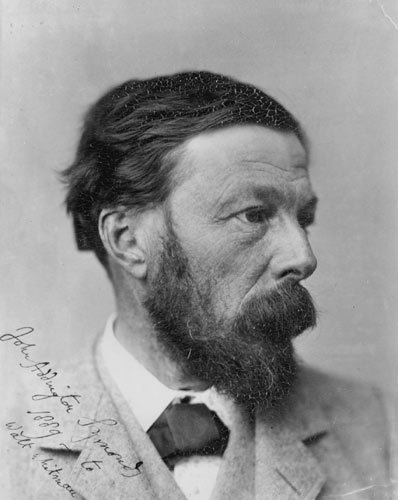
DEADLINE reminder: "Victorian Futures at the Dickens Universe"
University of California, Santa Cruz
July 29-31, 2011
The Dickens Project invites paper proposals for a conference on Victorian Futures, with keynote speakers Jay Clayton (author of Charles Dickens in Cyberspace: The Afterlife of the Nineteenth Century in Postmodern Culture) and Andrew Elfenbein (author of Romanticism and the Rise of English). The conference will be held at the University of California, Santa Cruz, beginning on the evening of Friday, July 29 and concluding at lunch-time on Sunday, July 31; papers will be allocated to "threads" to facilitate developing conversations of specific themes and topics. Submit 1-2 page abstracts and a short c.v. to Rebecca Stern (stern2@mailbox.sc.edu) by December 15, 2010.
Papers and panel proposals relevant to the theme of Victorian Futures are welcome. Potential topics include, but are not limited to:
- Progress and its Discontents
- Prediction, Probability, Risk, Speculation, Gambling
- Visions and the Visionary
- Romantic Futures, Victorian Presents
- Utopia/Dystopia
- Science Fiction (the "futuristic")
- Futures that Never Happened (counterfactuals; counterfictions; narratological explorations of tenses future and conditional; the optative)
- The Birth of the Author (as historical fact, as biographical challenge, as a critical category)
- Heavens and Hells
- Victorian Pasts and Presents (and, of course, Futures)
- Victorian Afterlives
- Futures for Victorian Studies
Participants in Victorian Futures are cordially invited to spend all or part of the week following the conference in the redwoods of central California at the annual gathering of the Dickens Universe, an international research group devoted to the study of the novels of Charles Dickens and Victorian literature and culture.
The Dickens Universe's study of Great Expectations begins on July 31 and concludes on the evening of Friday, August 5. Confirmed speakers for the week include Andrew Miller, Jonathan Grossman, Kathleen Frederickson, Teresa Mangum, Claire Jarvis, Helena Michie, Joe Childers, and David Kurnick.
Academic participants in Victorian Futures who wish to stay on for the Universe will have the opportunity to sign up for one of three established Working Groups, which will meet Monday through Wednesday (see below). They may also convene their own Working Group or participate in the Dickens Universe's Nineteenth-Century Seminar. Scholars may thus use the week as an opportunity for extended discussion and scholarly exchange, either with established collaborators or with new acquaintances. Academic participants in the Universe will experience its wide range of scholarly and convivial events; they will also have the opportunity to make a twenty-minute presentation about their current scholarly project in the Nineteenth-Century Seminar, which meets four times during the week.
Please consider the following options:
(i) Attend Victorian Futures as a speaker or participant.
(ii) Attend the Universe as a participant, with the option of joining the Nineteenth-Century Seminar. For further information about the Universe, please direct your questions to John Jordan (picasso@cats.ucsc.edu); write to Catherine Robson (Catherine.robson@nyu.edu) to learn more about the Nineteenth-Century Seminar.
(iii) Attend the Universe as part of a working group. Established groups include Victorian Economics, coordinated by Nancy Henry (nhenry3@utk.edu); Victorian Poetry, coordinated by Tricia Lootens (tlootens@uga.edu); and Nineteenth-Century Sciences, coordinated by Rebecca Stern (stern2@mailbox.sc.edu). You may also convene your own group and/or use the lovely Santa Cruz campus as a venue for meeting with established collaborators. For more information about a particular group, please contact the organizer. For more information about working groups in general, please contact Rebecca Stern.
About the Dickens Project: The Dickens Project hosts a conference at the end of each July on the beautiful wooded campus of UC Santa Cruz above Monterey Bay; this event, the "Dickens Universe," traditionally brings together around 200 people to conduct an intensive study of a single Dickens novel.
Of these individuals, roughly half are members of the general public, and half are faculty and students, post-graduate and undergraduate. Thirty two universities are currently members of the Dickens Project Consortium, each sending Victorianist faculty and students to the Universe every year: members include Berkeley, UCLA, Stanford, Indiana, Yale, Princeton, Cornell, Columbia, and NYU in the United States; Exeter, Birkbeck, and Royal Holloway in Great Britain; plus universities in Israel and Australia. The Dickens Project has earned a reputation as a leading research collective for both Dickens and Victorian studies, and, through its development of a range of events for post-graduates (including an annual winter conference for the delivery of their early academic papers), has established itself as a prominent supporter of the careers of junior Victorianists.
Go to http://www2.ucsc.edu/dickens/ for more information.














